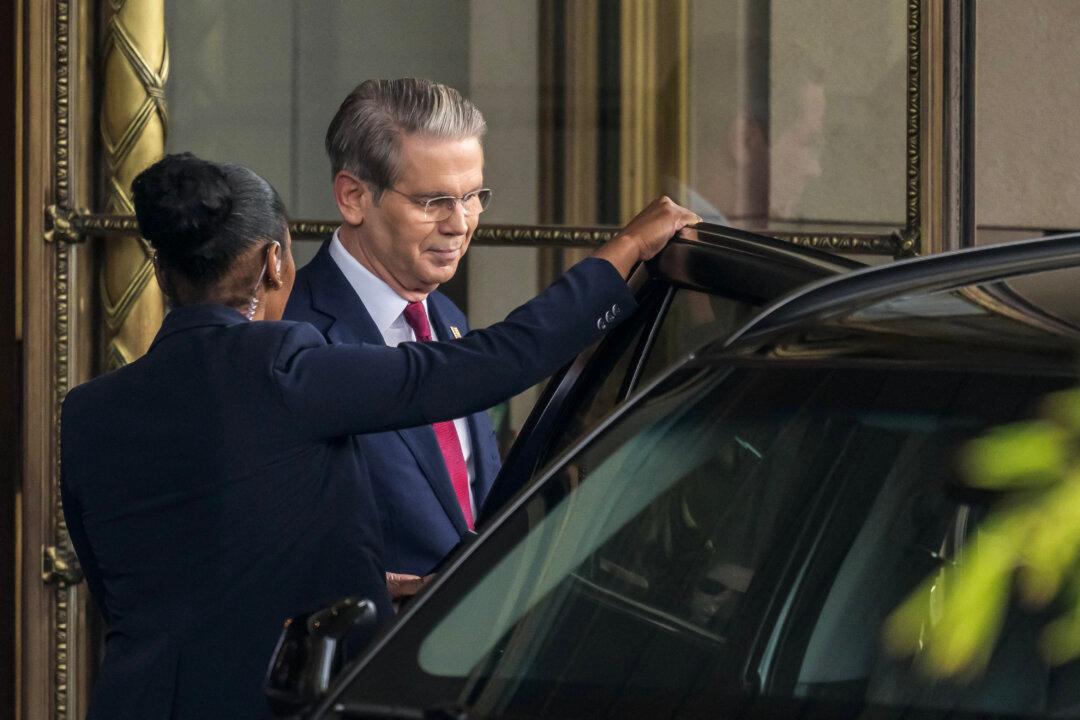President Donald Trump said that his team of negotiators had a “very good meeting today” with China in their first round of trade talks on May 10.
Treasury Secretary Scott Bessent and U.S. Trade Representative Jamieson Greer began meetings in Geneva with a Chinese delegation of high-ranking officials led by Vice Premier He Lifeng.




